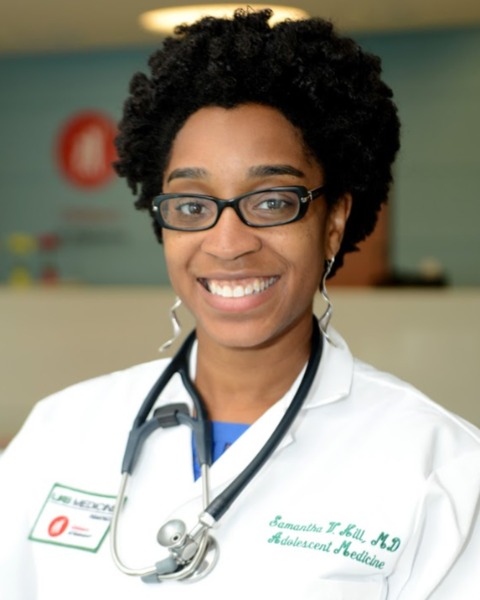Adolescent Medicine
Child Abuse & Neglect
Community Pediatrics
Diversity, Equity and Inclusion
General Pediatrics
Health Equity/Social Determinants of Health
Medical Education
2105 - Getting A HEADSStart: How to Talk to Teens In 3 Minutes Or Less About Sex
-

Kanani Titchen, MD
Assistant Clinical Professor, Adolescent and Young Adult Medicine
University of California, San Diego School of Medicine
San Diego, California, United States -
HW
Helen Wang, MD (she/her/hers)
Assistant Clinical Professor
University of California, San Diego
La Jolla, California, United States -

Samantha Hill, MD, MPH
Assistant Professor
The University of Alabama at Birmingham, Alabama, United States
Leader(s)
Co-Leader(s)
Growing evidence shows that parents and teenagers both want “the talk” and recognize their primary care providers as trustworthy and respected authorities on topics ranging from sexuality to substance use to suicidality. Although the adolescent psychosocial assessment ("HEADSS" assessment - for Home, Education, Activities, Drugs, Sex, Suicide) provides an important gauge for teen risk & resilience factors, recent studies have shown that only half of pediatric primary care providers engage the HEADSS assessment (even fewer if the patient is non-white), and only half of teen patients are afforded private time with their provider. This workshop will guide pediatric primary care providers in conducting an effective, trauma sensitive, and time efficient sexuality history-taking as part of a strengths-based HEADSS exam with their teen patients. A combination of didactic, improvisational, role-play, and discussion exercises will guide pediatric primary care providers through trauma-sensitive language, empower them to prioritize components of the HEADSS assessment, and equip them to ask their teens about sex, sexuality, gender, and sexual abuse. Further, we provide learners with resources for teen patients and their parents, as well as toolkits to conduct their own trainings at their home clinics and training programs.
